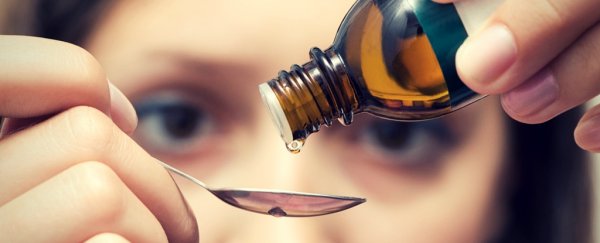Homeopathy is the world's most popular alternative medicine, despite having very little in the way of science to back it up.
While many scientists consider it a complete waste of time, a lot of people swear by it – and a great new video from Kurzgesagt explains why.
Part of the reason is that in the 18th century, when homeopathy got started, medical treatments were very different than they are today. Techniques like bloodletting often caused patients to get worse rather than better.
Against that backdrop, homeopathic cures soon took off – because taking medicines that did nothing were better for the sick than the alternatives that were around at the time.
Today we know better of course, but homeopathy remains a hugely successful industry, with the global homeopathy market expected to reach US$17 billion by 2024.

So why do so many people still keep taking these remedies?
As Kurzgesagt explains, it's simply either the placebo effect in action, or our bodies just getting better naturally over time. Move along, there's nothing to see here - but there are more reasons that make this option compelling to many.
Homeopathy is based on the idea that "like cures like" - so, to treat a fever you might take an extract of a plant that can actually cause fever, albeit at very diluted levels.
In fact, most homeopathic treatments are so diluted that there's no trace of the original substance in them. The solutions or pills are said to still work because the water somehow remembers what was in it before it was diluted.
That's not a claim the scientific community accepts – otherwise every drop of water we drink would be a strong cocktail of all the stuff that's ever been dropped into it. Most research shows that homeopathy has no effect at all on our health.
Does the science matter though, if we end up feeling better? Unfortunately, options such as homeopathy can end up leading people away from scientifically proven and reputable medical treatments, like vaccines.
Governments across the globe are now cracking down on the claims made by the manufacturers of homeopathic treatments, in an attempt to put a stop to drugs that won't do anything for patients and may even make them worse.
But we can still learn something from homeopathy, despite its dodgy scientific basis.
According to Kurgesagt, the care and interest that homeopaths show to their patients often offers a better experience than the production-line feeling you can get from visiting an overworked general practitioner.
We all have a choice as to the type of treatments we take for ourselves and give to our kids, but it's always worth checking the science behind the cures too – because your life could literally depend on it.
As the team at Kurzgesagt put it: "Faith can move mountains, but sugar water can't cure cancer."
